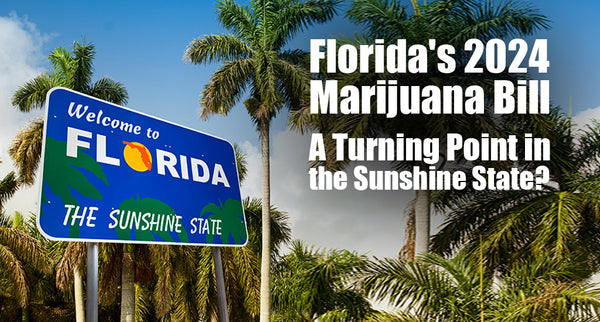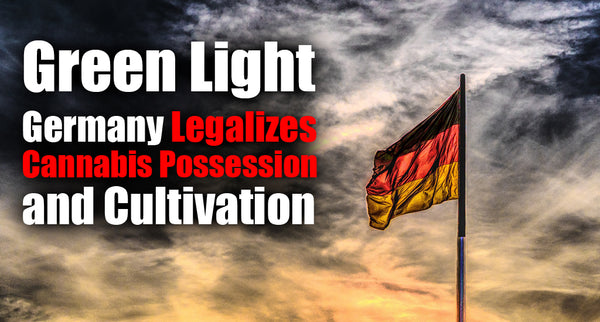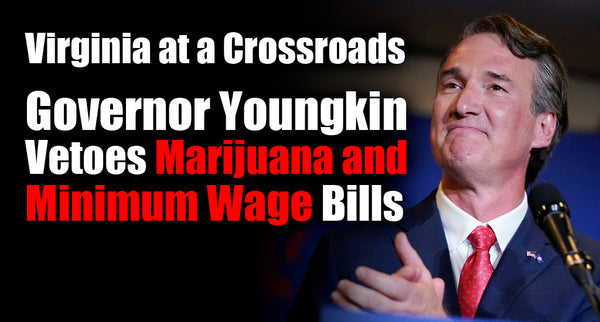
Recreational Marijuana Legalization in Minnesota: 9 Must-Know Facts
Minnesota will legalize recreational marijuana next week, and there are some important details you should know about this development.
Starting early next week, individuals in Minnesota who are 21 years or older will be allowed to possess and grow their own marijuana for recreational use. The state's Legislature passed a 300-page bill earlier this year, and Governor Tim Walz signed it into law shortly thereafter.
While at least one Minnesota tribe plans to begin sales immediately, the state expects most legal retail sales to commence only in early 2025. This delay is due to the establishment and implementation of a licensing and regulatory system for the new cannabis industry.
Minnesota will become the 23rd state to legalize recreational marijuana, following Colorado and Washington, which did so over a decade ago.
The legalization of recreational marijuana came after a heated debate between critics concerned about public safety and the potential impact on young people, and supporters who argued that the prohibition of the drug had proven ineffective. Proponents of the law highlighted that people of color faced disproportionate arrests for minor cannabis-related offenses, leading to lasting negative effects on employment and housing opportunities.
It is important to note that, like the general public, farmers are not allowed to transport cannabis across state lines due to the ongoing federal ban on marijuana.
The new law outlines several key aspects of recreational marijuana use in Minnesota:
-
Possession and Travel: Adults aged 21 and older can possess up to 2 ounces of cannabis flower, 8 grams of concentrate, and 800 milligrams of THC-containing edible products (e.g., gummies and seltzers). At home, individuals can have up to 2 pounds of cannabis flower.
-
Retail Business Licenses: There are 12 different business licenses available for those interested in entering the adult-use market, in addition to licenses specific to medical cannabis. To operate a business, applicants must be at least 21 years old and pay various fees, which can be substantial.
-
Social Equity Applicants: The legislation aims to correct the injustices caused by cannabis prohibition, especially its disproportionate impact on certain communities. People convicted of cannabis possession or residing in areas with high poverty levels are considered "social equity applicants," which can boost their chances of receiving licenses and grants.
-
Interstate Transport: It remains illegal to transport marijuana across state lines, and this applies to both incoming and outgoing shipments. However, efforts are underway to build support for a medical cannabis program that could gain bipartisan backing.
-
Driving Under the Influence: It will still be illegal to drive in Minnesota while under the influence of THC. However, determining impairment is more complex than with alcohol, as THC can remain in the body for days or weeks after use.
-
Home Cultivation: Adults are allowed to grow up to eight cannabis plants at home, with a maximum of four flowering at any given time. The plants must be grown in an enclosed, locked space that is not visible to the public.
-
Consumption Restrictions: Cannabis can be legally consumed on private property, including private homes. However, smoking or vaping cannabis in places where tobacco smoking is prohibited, such as businesses, apartment buildings, and college campuses, is still against the law.
-
Employment: Employers are prohibited from requiring a drug test specifically for cannabis as a condition of employment, except in certain circumstances. However, companies can still have policies prohibiting cannabis use during work hours and on company premises.
-
Firearms and Cannabis: Despite Minnesota's new law, federal regulations still prohibit cannabis consumers from owning firearms or ammunition. People following state law are still considered "unlawful users" of marijuana for federal purposes, creating a conflict with Second Amendment rights.
-
Expungement of Records: The new law will automatically expunge minor marijuana convictions, such as possession of small amounts, starting in August. This process may take up to a year to clear everyone's record. A special Cannabis Expungement Board will review felony convictions on a case-by-case basis to determine eligibility.
-
Regulation: The Office of Cannabis Management will oversee the cannabis industry in Minnesota, including the medical marijuana program, which will not be subject to taxation. Tribal governments will have the authority to establish their own rules.
With these details in mind, Minnesotans will need to be aware of the rules and regulations surrounding recreational marijuana use to stay within the bounds of the law.
Leave a comment
Comments will be approved before showing up.



